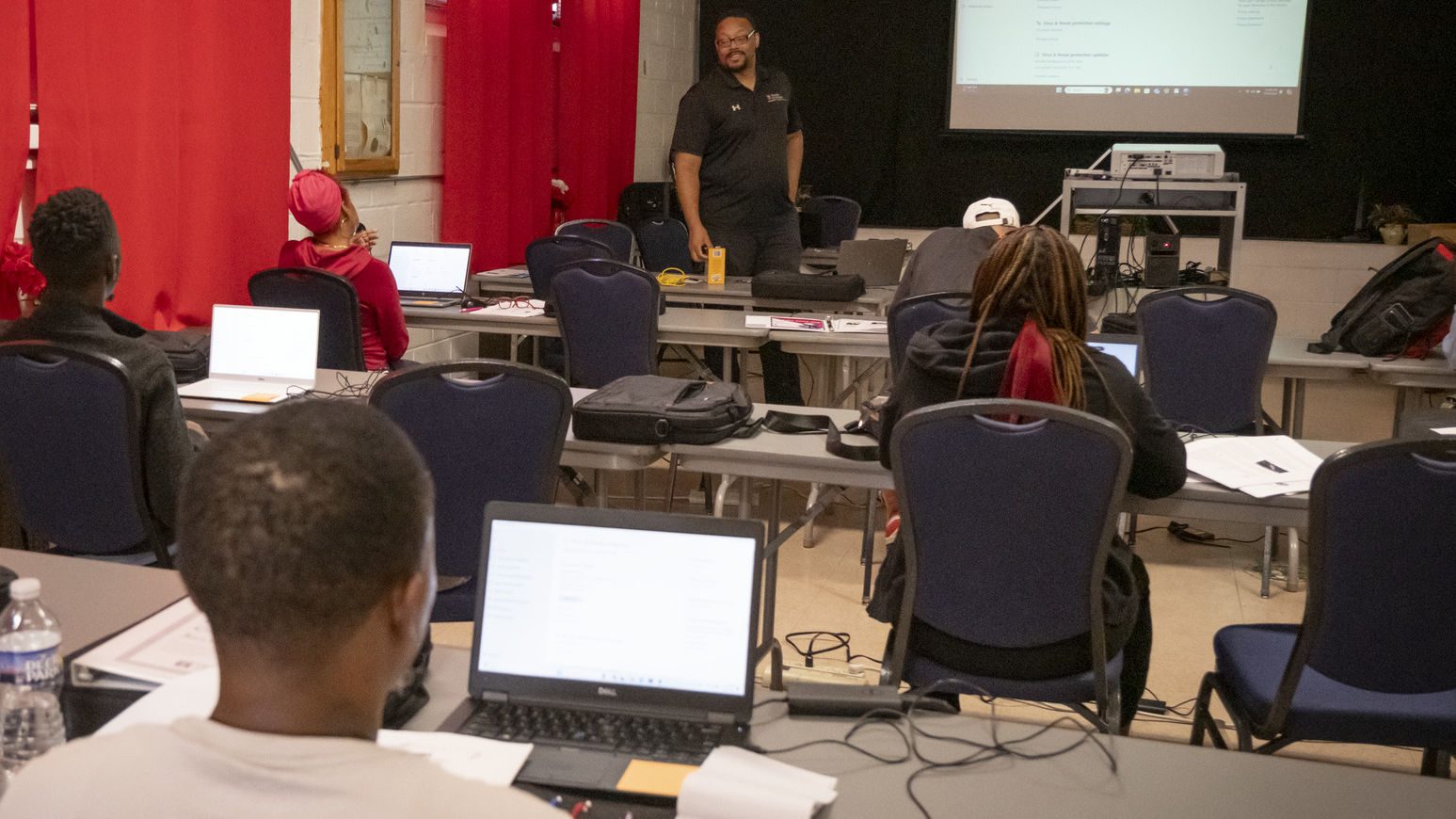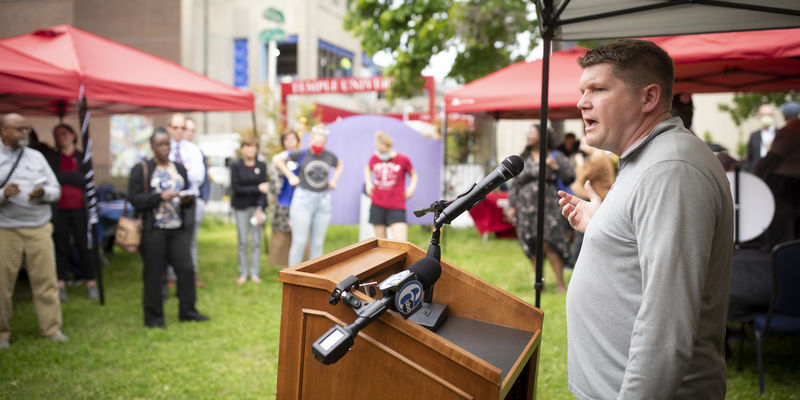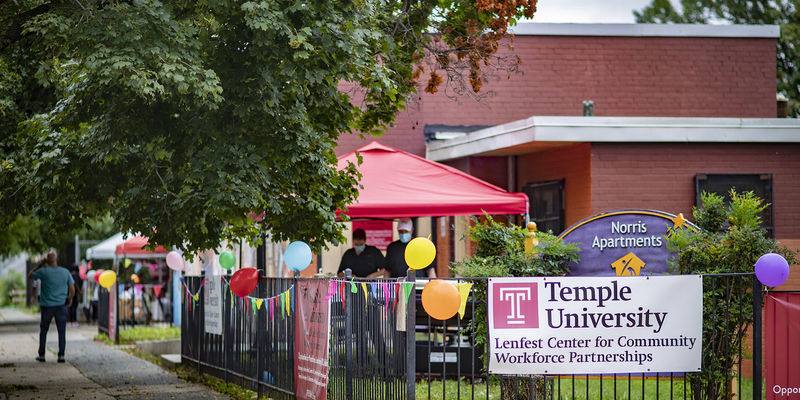Temple’s Digital Equity Center strives to address digital divide
The center marks two years of providing free computers and digital literacy courses to community members.

Temple’s Digital Equity Center is playing an integral role in ensuring that digital inclusion is advancing in Philadelphia.
The center, located at 1915 N. 11th St., was initially supported by funding from the Dell Foundation and the Lenfest Center for Community Workforce Partnerships and more recently by smaller donations from Comcast and the Verizon Foundation, and focuses on providing technology, help desk support and digital literacy to North Philadelphia residents.
The initiative grew out of Temple’s Computer Recycling Center, developed by Jonathan Latko, assistant vice president of IT business operations at Temple. He started by refurbishing computers and offering them to Temple students and staff.
“We had inexpensive, at nominal cost computers to help bridge the digital divide within the institution,” Latko said. “That was really the core of it in the beginning.”
As Latko realized that some area residents lacked computer access that impacted their ability to apply for employment or apply for school, he started forming partnerships with nonprofits to set up computer labs across Philadelphia.
This led Temple to officially open the Digital Equity Center in May 2022. Since its inception, the center has donated 850 computers to community members. Computers are distributed based on referrals from Temple’s internal partners and nonprofit community partners. Community members earn a free computer by taking the center’s 12-hour digital onboarding class, which covers topics such as hardware, operating systems, websites and cybersecurity.
The center’s work comes as a 2021 city survey showed that 84% of households in Philadelphia have high-speed internet, up from 70% in 2019. The study also found that 16% of households without internet are largely made of low-income homes or those with elderly residents.
“In North Philadelphia and the Philadelphia community as a whole, there is definitely a gap in what resources our community members have access to when it comes to computer access, internet access and their basic digital literacy skills,” said Sean Mitchell, a Temple University technical support specialist who leads the center.
Mitchell says when center staff went out into the communities, they encountered residents who don’t have computers at home or those struggling with the shift that occurred when many services moved online after the pandemic.
“Our goal was to try to be a resource for our community members where they have a space where they can come in person and get the help they need to be able to access these online resources,” he explained.
The Digital Equity Center also trains interns from workforce development program partners to fix donated computers for future use and teach digital literacy classes.
“We’re trying to find pathways into entry-level IT jobs through our work in digital equity with these community interns,” Mitchell said.
Temple has also sponsored the Technology Learning Collaborative conference, which is geared toward digital inclusion providers and advocates, for the last two years. Digital Equity Center staff are gearing up for the 2024 conference, scheduled for Oct. 10.
The center’s efforts were displayed in February when Temple invited 80 attendees of the Net Inclusion 2024 conference to North Philadelphia for a digital equity walking tour. Net Inclusion, which is considered the nation’s biggest digital inclusion conference, drew more than 1,000 attendees to Philly.
The tour featured stops on Temple’s campus, where they visited TechOWL, which offers technology for people with disabilities; the Digital Equity Center; the Computer Recycling Center and Charles Library’s public lab. The event wrapped up at the Philadelphia office of PCs for People, a nonprofit organization that provides computers to residents.
“That walking tour was very important to showcase what Temple and what North Philly were doing for digital equity,” said Latko, who is part of Philadelphia’s Digital Literacy Alliance.
“The feedback from that group is that this is the most they’ve seen in layers that an institution has put resources towards,” Latko added. The Net Inclusion conference was a huge deal for Philadelphia and what we are doing here.”
The center is making strides to ensure that community residents have technological access, which positively impacts their ability to connect with key employment, educational and healthcare opportunities.


